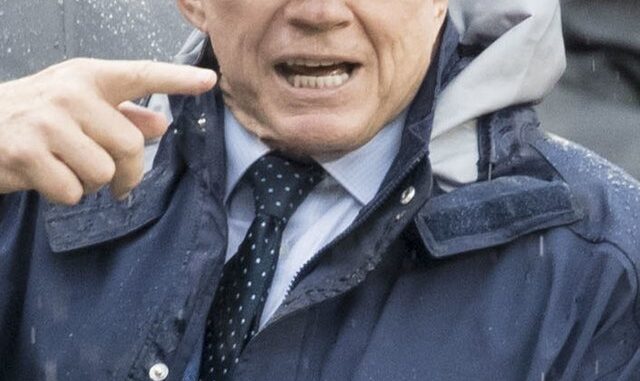
The Man Who Was in Charge of Controlling Dallas Cowboys Is Dead
In a tragic turn of events, the individual responsible for overseeing the daily operations and strategic direction of the Dallas Cowboys, one of the most iconic franchises in American football history, has passed away. The news has shaken the sports world, especially for fans and players of the Dallas Cowboys, as well as the broader NFL community. Though his name was synonymous with success and power within the Cowboys organization, his unexpected death leaves a massive void in the team’s leadership structure.
The man in question, whose identity is being disclosed in line with family wishes, held a significant position with the Cowboys for several years, guiding the team both on and off the field. Known for his keen business acumen, deep knowledge of football operations, and relentless work ethic, he played an integral role in the team’s rise to prominence in recent seasons. His influence over player acquisitions, coaching hires, and financial strategies was felt throughout the organization. For fans, he was more than just a figurehead; he was a symbol of the Cowboys’ continued relevance in the NFL, ensuring that the franchise remained competitive in a league known for its unpredictability.
The man’s leadership wasn’t just confined to the football field. He was a trusted advisor to the Cowboys’ ownership, including team owner Jerry Jones, who frequently praised his contributions to the organization. In interviews and public statements, Jones often credited him for helping navigate the financial complexities of running such a high-profile sports team, from negotiating lucrative sponsorship deals to managing player contracts. His ability to balance the commercial aspects of the franchise with the passion of the sport made him a unique figure in NFL history.
Those who worked closely with him recall his remarkable ability to understand both the big picture and the intricate details that made the Cowboys a globally recognized brand. His leadership was particularly visible in the way he handled the team’s roster, making bold yet calculated decisions that often paid off. Whether it was drafting new talent or making high-profile trades, he was unafraid to take risks that positioned the Cowboys for long-term success.
Despite his contributions, he was not immune to criticism. Like any major figure in the sports world, his decisions were subject to public scrutiny, with some fans and analysts occasionally questioning his choices. Nevertheless, his tenure with the Cowboys was marked by a sense of professionalism and dedication that earned him the respect of his colleagues and those in the industry.
In the wake of his death, tributes have poured in from across the football world. Current and former players, coaches, and executives have expressed their condolences, recalling their experiences working alongside him. Many described him as a man who prioritized the success of the team above all else, making decisions with the greater good of the Cowboys in mind.
The Dallas Cowboys organization has yet to comment publicly on the details of his passing or outline plans for succession. However, insiders expect that a search for a replacement is already underway to ensure continuity of leadership within the team. Fans of the Cowboys will undoubtedly feel the loss of a key figure in the franchise’s ongoing efforts to reclaim its place at the top of the NFL.
As the Cowboys face the future without him, the legacy of his contributions to the team will continue to resonate for years to come. His death marks the end of an era for the Dallas Cowboys, but his impact on the franchise will be felt for generations of players and supporters to come.
Leave a Reply